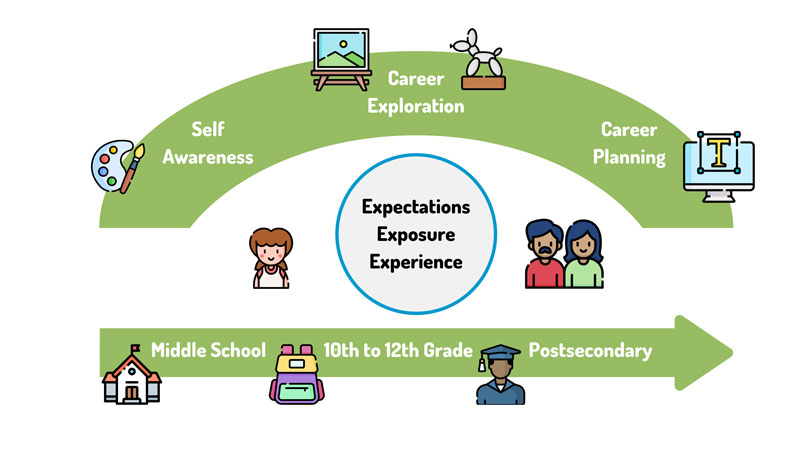As a student, you may often find yourself overwhelmed with the pressure of choosing and planning for your future career. I remember feeling lost and uncertain about what path to take after graduation. However, I have learned that career planning is not a linear journey, but rather a personal and ever-evolving process.
When it comes to career planning, it is essential to strike a balance between personal aspirations and pragmatic considerations. While it is crucial to pursue what you love and are passionate about, it is also important to be aware of the job market and the skills in demand. Here are some steps you can take to map your career path successfully.
1. Self-Reflection: Begin by reflecting on your interests, values, and strengths. What activities or subjects excite you the most? What are your core values and beliefs? Identifying these aspects will help you choose a career that aligns with your passions and will bring you fulfillment in the long run.
2. Explore Career Options: Once you have a better understanding of yourself, explore different career options that might interest you. Attend career fairs, talk to professionals in various fields, and reach out to alumni from your school to gain insights into different industries. The more you expose yourself to diverse career paths, the better you can assess if they align with your interests and aspirations.
3. Gain Real-World Experience: Practical experience is invaluable in understanding the day-to-day realities of a particular profession. Seek internships, part-time jobs, or volunteer opportunities that allow you to gain hands-on experience in your field of interest. This will not only help you confirm your career choice but also provide you with valuable skills and networking opportunities.
4. Skills Development: Alongside your academic endeavors, invest time in developing skills that are relevant to your chosen career. Identify the skills required in your desired field and find ways to enhance them. This could include taking relevant courses, attending workshops or conferences, or participating in extracurricular activities that provide a platform for skill development.
5. Set Goals: Establish short-term and long-term goals that will keep you motivated and focused. These goals can serve as a roadmap for your career trajectory. Break them down into manageable steps and set deadlines for each milestone. Regularly review and update your goals to ensure that they align with your evolving interests and ambitions.
6. Seek Mentorship: Finding a mentor who has experience in your chosen field can be invaluable. They can provide guidance, advice, and support, helping you navigate through the ups and downs of your career journey. Reach out to professionals in your network or connect with alumni who are willing to mentor students. Their insights and wisdom can provide you with a unique perspective on your career path.
7. Embrace Flexibility: It is essential to remain open-minded and adaptable throughout your career planning process. Your passions and interests may change as you gain more knowledge and experience. Be willing to explore new opportunities and make adjustments to your plans accordingly. Remember, a career path is not set in stone, and it is okay to pivot if it leads you to a more fulfilling future.
8. Network, Network, Network: Building a strong professional network will greatly benefit your career. Attend networking events, join relevant professional organizations, and engage with industry leaders through social media platforms. Establishing connections with professionals in your field can lead to job opportunities, internships, and valuable insights into the industry you aspire to enter.
9. Seek Guidance from Career Services: Most educational institutions provide career services to assist students in their career planning journey. Take advantage of these resources, such as career counseling, resume reviews, and mock interviews. These services are designed specifically to help you succeed in your chosen career path.
10. Embrace Continuous Learning: Finally, understand that learning doesn’t end with your graduation. The job market is ever-changing, and new skills and technologies emerge constantly. Stay relevant and adapt by continuing to learn and upskill throughout your career. Take online courses, attend workshops, and engage in professional development opportunities to stay on top of industry trends.
Remember, career planning is a dynamic process that requires time, self-reflection, and exploration. It is normal to feel uncertain at times, but trust in yourself and your ability to navigate through the challenges and opportunities that come your way. By mapping your career path with passion and pragmatism, you will be well-equipped to embark on a fulfilling and successful professional journey.
